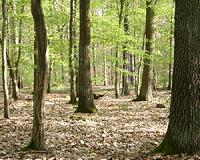| . |  |
. |
Rio De Janeiro (AFP) May 27, 2011 The rate of deforestation of Brazil's Atlantic Forest along much of the country's eastern coast fell by some 55 percent between 2008 and 2010, according to a study released Friday. "The reduction can be explained by more stringent laws and better control" by environmental protection authorities, said Marcia Hirota of the SOS Mata Atlantica foundation, which carried out the study with the mapping surveys of Brazil's National Institute for Space Research (INPE). Between 2008 and 2010, the forest, which is the country's most devastated ecosystem -- second only in the world to the forests of Madagascar -- lost 32,000 hectares. By comparison, deforestation was proceeding at a rate of 34,000 hectares a year in 2000, the group said. When European colonists arrived in the 1500s, the forest extended along Brazil's entire coastline. But it has lost almost 93 percent of its original size, and its fragmented remains now cover some 28,600 sq km. "At this rate, the forest will be gone by 2050," warned the foundation. One state, Minas Gerais in the southeast, has been responsible for almost 40 percent of the deforestation, with trees felled to produce charcoal and to be used as fuel for iron and raw steel production. The Environment Ministry, meanwhile, warned in a statement that reforms to the Forestry Code that were approved by the lower house of Congress earlier this week, "might accelerate" damage to an ecosystem that provides water to some 123 million people, out of the country's total population of 191 million. But the new law, which still must pass the Senate, would allow huge areas of the country to be farmed if they were illegally logged before July 2008, and it would allow farming along environmentally sensitive riverbanks. The bill was initially intended to rein in unfettered logging, but was reshaped by farm-based economic interests to ease restrictions that have been in place since 1965, and are credited with curbing deforestation. Earlier this month the Brazil government announced the creation of an emergency task force to fight deforestation of the Amazon rainforest, after a sharp increase in deforestation in that region was recorded in March and April this year.
Share This Article With Planet Earth
Related Links Forestry News - Global and Local News, Science and Application
 Global Warming May Affect the Capacity of Trees to Store Carbon
Global Warming May Affect the Capacity of Trees to Store CarbonWoods Hole MA (SPX) May 27, 2011 One helpful action anyone can take in response to global warming is to plant trees and preserve forests. Trees and plants capture carbon dioxide during photosynthesis, thereby removing the most abundant greenhouse gas from the atmosphere and storing some of it in their woody tissue. Yet global warming may affect the capacity of trees to store carbon by altering forest nitrogen cycling, con ... read more |
|
| The content herein, unless otherwise known to be public domain, are Copyright 1995-2010 - SpaceDaily. AFP and UPI Wire Stories are copyright Agence France-Presse and United Press International. ESA Portal Reports are copyright European Space Agency. All NASA sourced material is public domain. Additional copyrights may apply in whole or part to other bona fide parties. Advertising does not imply endorsement,agreement or approval of any opinions, statements or information provided by SpaceDaily on any Web page published or hosted by SpaceDaily. Privacy Statement |